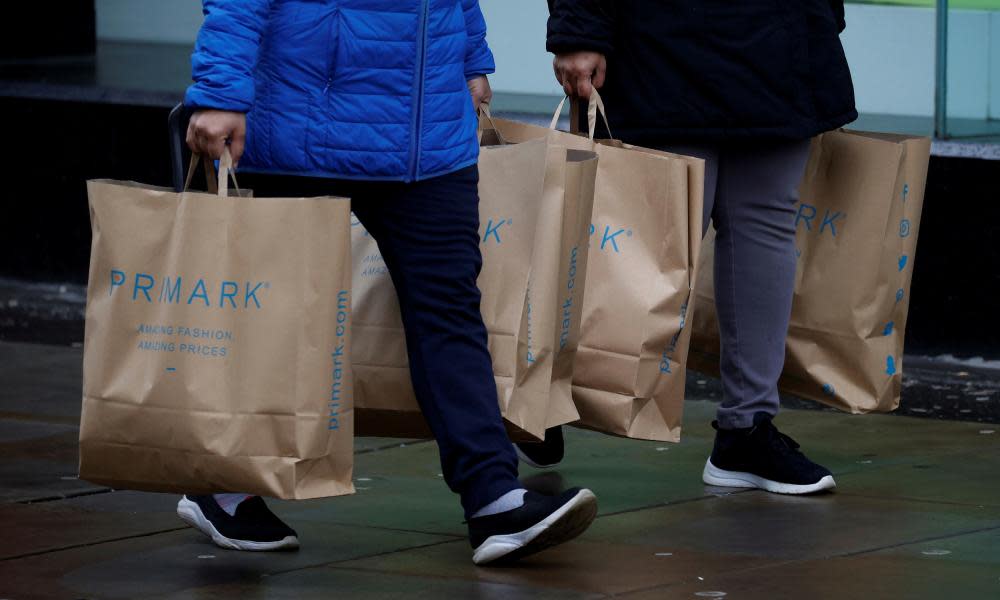Primark sales plunge by £1.5bn but chain 'expects to break even'

Primark sales dropped by £1.5bn year-on-year during the last six months while the fast fashion retailer’s stores were closed by pandemic restrictions.
The retailer estimated it would sell £2.2bn of goods in the 24 weeks to 27 February, £1.5bn lower than the equivalent period in the year before, its owner, the conglomerate Associated British Foods (ABF), reported on Thursday.
ABF’s interests in groceries, sugar and agriculture all increased their sales and profits in the last six months, but the pandemic has hit its money-spinning Primark chain hard, with further pain to come. ABF said it expected a further £480m in lost sales at Primark during the next six months.
However, the company said it expected the retailer, which does not sell its products online, to break even narrowly on an adjusted measure of profitability for the last six months, and added that it expected a spending spree once stores reopen.
Eighty-three percent of its shop floorspace should be up and running by 26 April, it said in a trading update, compared with less than a quarter on Thursday. Its 153 stores in England will open on 12 April, the first date allowed for non-essential shops, if all goes to plan.
“We expect the period after reopening to be highly cash generative,” ABF said.
Primark has resisted pressure to invest in an online shop, a strategy that had – until the coronavirus pandemic – appeared to pay off with big profits. Since then, however, its stores have been hit by months of closures and restrictions across all of its main UK and European markets.
As well as forcing closures, the pandemic has changed shoppers’ behaviour, contributing to a 15% decline in like-for-like sales when shops are open. City centre stores have been hit by a lack of commuters and tourists, while stores in out-of-town retail parks have sold clothes faster than before the pandemic.
Primark is also betting that fashions have not changed dramatically during the last year among locked-down customers. It expects to sell £150m of stock held over from last spring and summer, followed by another £260m of stock from the autumn and winter of 2020.
ABF added that it had not suffered any material disruption from the UK’s exit from the EU’s single market at the start of the year across any of its businesses.

 Yahoo News
Yahoo News 